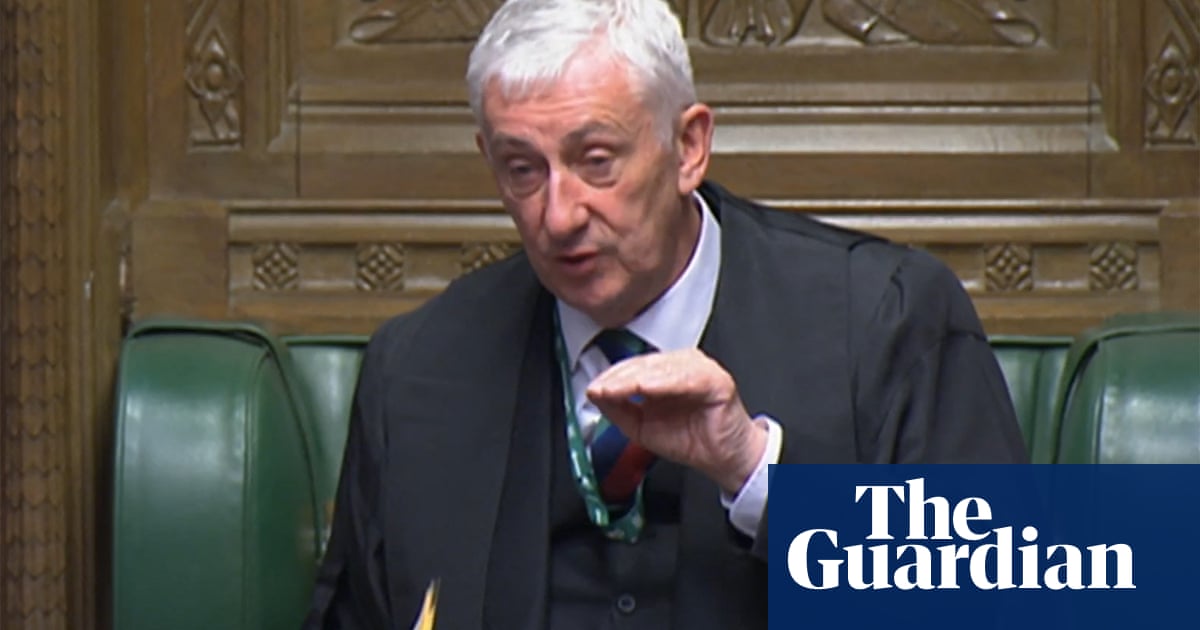
Lindsay Hoyle has come out fighting in the face of Tory and Scottish National party attempts to oust him, as Rishi Sunak’s spokesperson repeatedly refused to say the prime minister has full confidence in him.
After chaotic scenes during Wednesday’s Gaza ceasefire vote, Hoyle’s future as the Commons speaker is in doubt as the SNP said his position was untenable and dozens of backbench Tory MPs signed a motion calling for a confidence vote in him.
Hoyle is under pressure over his handling of an SNP motion calling for an immediate ceasefire in Gaza, after he opted to change parliamentary rules in order to let an alternative Labour amendment be debated as well as a government one.
Tory and SNP MPs accused him of bowing to pressure from Keir Starmer to allow the Labour motion, which was passed.
Hoyle once again apologised for a “wrong decision”, against the advice of the House of Commons clerks. He said his mistake had been in pursuit of looking after MPs, after being told of “absolutely frightening” threats against them if the Labour position was not debated.
He said the SNP could have an emergency debate on Gaza, but the offer failed to placate its Westminster leader, Stephen Flynn.
Hoyle’s decision to allow the Labour amendment led the government to withdraw its own motion on Gaza. The Labour motion subsequently passed, with Tory sources confirming that it was partly because they did not have enough time or votes to get their own amendment through the Commons. The SNP is furious that its original motion was sidelined.
Government sources said they were not pushing to remove the speaker from office, and Penny Mordaunt, the leader of the Commons, defended him as a “decent man”.
However, Sunak’s official spokesperson declined to back him. When pressed several times on whether he had confidence in Hoyle, the spokesperson deflected the question. He said Sunak was purely focused on addressing the situation in the Middle East, and the question of the speaker was a matter for parliament.
While the government is not pushing for his removal, Kemi Badenoch, the business secretary, retweeted a scathing intervention from the former attorney general Geoffrey Cox saying Hoyle’s reasoning was unacceptable.
“There are two possible explanations for the speaker’s decision to abandon longstanding convention,” Cox said. “First, he did it to assist his former party leader get out of a bind. Secondly, as he says, he did it in a misguided attempt to protect certain Labour MPs from the intimidation they said would otherwise have followed, if they had voted against the SNP motion.
“Either reason is unacceptable. If the former, it is an abuse of his office. If the latter, it is an abject surrender to intolerance and tyranny; it meekly offers up the House of Commons as able to be influenced by external threats.”
During an occasionally tense Commons session on Thursday morning, opinions were split over Hoyle’s fate. Addressing the speaker directly, Flynn said: “As I have expressed to you privately prior to proceedings here today, we do not on these benches believe that you can continue in your role as speaker if we do not have confidence in your ability to do so.”
The speaker also received words of support from many MPs, including on the Conservative benches. Sir Edward Leigh, a Tory backbencher, said: “I think we should move on now and I would recommend that we don’t put in motions of no competence.”
Mark Francois, a veteran of the Tory right, spoke emotionally in Hoyle’s defence. Referring to the murder of his friend and fellow MP David Amess, Francois said: “I will remember everything that the speaker did to help me and all of us when our great friend, my best friend, was murdered ... Mr speaker went the extra mile for all of us to help us all deal with that tragedy.”
Mordaunt said on Thursday that MPs “cannot adapt our processes and procedures in this place to not have difficult debates … we have to stand up for our constituents and make the judgments we think are right. If we are adapting the procedures of this house because we are fearful of the consequences of standing up and saying what we think is right, then democracy has failed and the extremists have won.”
Keir Starmer defended his decision to lobby Hoyle to allow a Labour amendment on the Gaza debate. Starmer met Hoyle hours before the vote, arguing that the speaker should ignore precedent and allow a vote on the Labour motion.
Speaking on Thursday, he denied allegations of threatening the speaker, telling journalists on a visit in Sussex: “I can categorically tell you that I did not threaten the speaker in any way whatsoever. I simply urged to ensure that we have the broadest possible debate. So that actually the most important thing, which is what do we do about the situation in Gaza, could be properly discussed by MPs with a number of options in front of them.”












